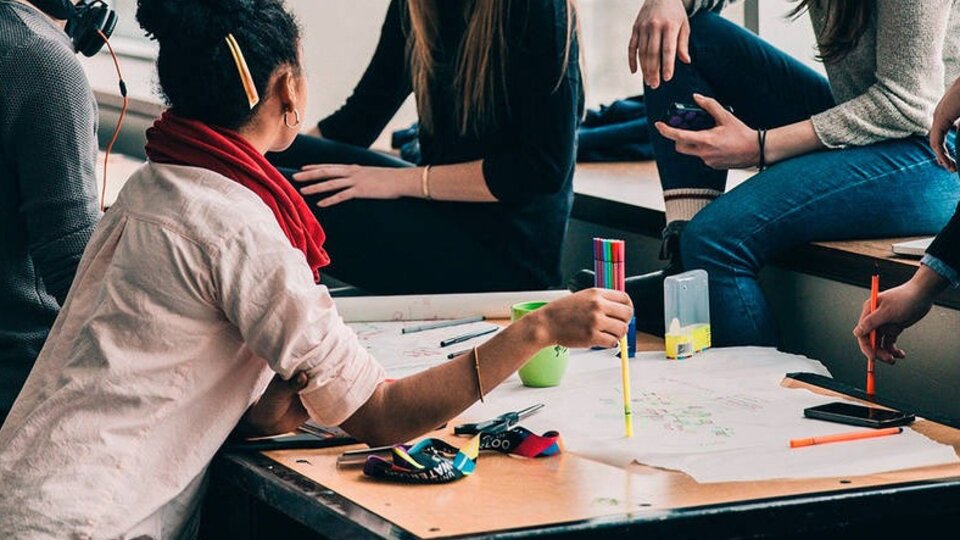
[ad_1]
With the covid-19 pandemic, the time it will take to close the global gender gap has increased by a generation: from 99.5 to 135.6 years according to the Global Gender Gap Report 2021 published this Wednesday by the World Economic Forum. Iceland remains the most gender-equal country, followed by Finland, Norway, New Zealand and Sweden. Argentina occupies 35th place. At the current rate, it will take 69 years for Latin America to close the gap. Globally, women have been more affected in terms of employment than men with higher job loss rates: 5% compared to 3.9% for men. And as the job market recovers, data from LinkedIn shows that women are hired at a slower pace in different industries, less likely to be hired into managerial positions, leading to a decline in employment. advancement between 1 and 2 years.
Regionally, in Latin America and the Caribbean, 15 of the 25 countries in the region improved their overall scores. Belize, El Salvador and Suriname stand out for reducing their gender gap by more than 2.3 percentage points in one year: in any case, this does not mean that the situation of women in these countries is still not affected by deep inequalities.
The report warns that, although equal conditions are achieved in education and health, women do not have the same opportunities and face obstacles in the economy, in the workplace and in terms of participation in the workplace. political life.
The report, now in its 15th year, compares the evolution of gender gaps in four areas: economic participation and opportunity, educational attainment, health and survival, and political empowerment. In addition, it examines the causes of gender gaps and describes the policies and practices necessary for inclusive recovery.
This year’s deterioration is attributed, in a way, to a growing gender gap in politics in several densely populated countries. Although half of the 156 countries included in the report recorded an improvement, women still hold only 26.1% of parliamentary seats and only 22.6% of ministerial positions globally. Based on its current trajectory, the gender gap in politics is expected to take 145.5 years to close, compared to 95 years in the last edition of the report, an increase of over 50%.
In part, the decline in the world of work is due to the increased frequency of women holding jobs in sectors most affected by closures, coupled with additional pressures related to caregiving and household chores. The economic gender gap has improved only marginally since the 2020 edition of the report and is expected to take another 267.6 years to close. The slowness of progress is due to opposite trends; While the proportion of women among skilled professionals continues to increase, income disparities persist and few women hold positions in management teams, the publication notes.
“The pandemic has dramatically affected gender equality, both in the workplace and at home, setting back years of progress. If we aspire to a vibrant future economy, it is essential that women are present in the jobs of the future. Now more than ever, it is essential to focus on leadership, commitment to strong goals and mobilizing resources; The time has come to incorporate gender parity, by integrating it into the recovery, ”said Saadia Zahidi, Managing Director of the World Economic Forum.
Sectors where the representation of women is historically low are also experiencing rapid growth in “jobs of the future”. For example, in cloud services, women make up only 14% of the workforce; in engineering, 20% and 32% in Big Data and artificial intelligence. This makes it more difficult for women to access these new positions than for men. The report offers new metrics that allow you to track progress towards closing gender gaps in the jobs of the future. While care and education occupations also offer areas for future growth and have a higher representation of women, these are often lower paying jobs than other jobs of the future.
“Women are under-represented in most fast-growing positions, which means we are accumulating even greater gender representation issues as we emerge from the pandemic.” These positions play an important role in shaping everyone. Aspects of the technology and its global deployment. perspectives must be represented at this stage of creation, especially as digitization continues to accelerate. Businesses and governments need to build diversity, equity and inclusion into their recovery plans. Evaluating candidates based on their skills and potential, not just their direct work experience and regulated training. Competency-based hiring is essential if we are to make our economies and societies more inclusive, ”said Sue Duke, Director of Global Public Policy at LinkedIn.
.
[ad_2]
Source link
 Naaju Breaking News, Live Updates, Latest Headlines, Viral News, Top Stories, Trending Topics, Videos
Naaju Breaking News, Live Updates, Latest Headlines, Viral News, Top Stories, Trending Topics, Videos